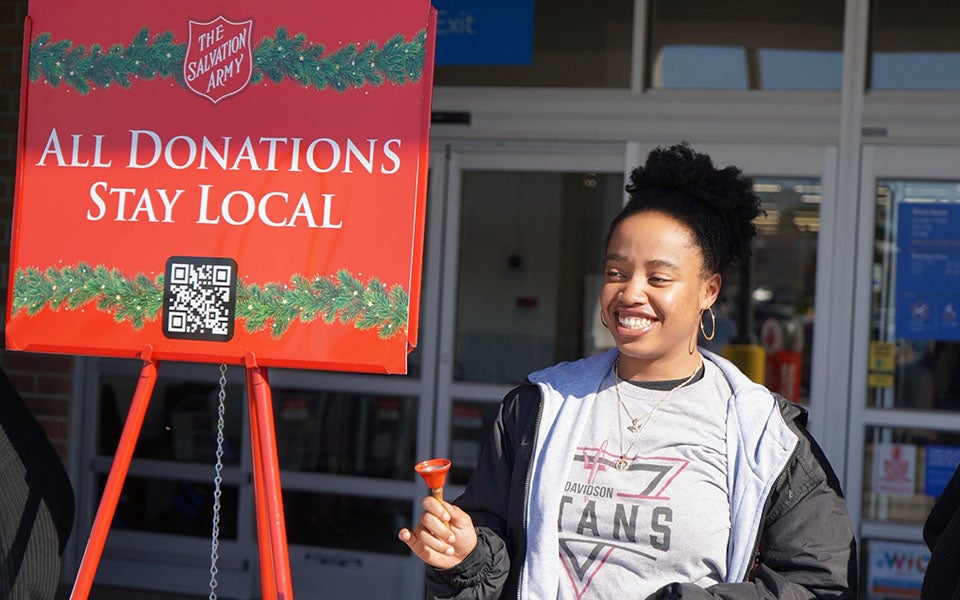Editor’s note: Coffee houses are a staple of American culture and have been since well before the Revolutionary War.
Americans inherited the coffee house tradition from England, where the first coffee house opened in 1652, according to a history of coffee houses on the Library of Congress website. By 1675, more than 3,000 coffee houses operated in England. The tradition migrated to the American colonies in 1676 when the first coffee house opened in Boston. That was a century before the Revolutionary War began.
Coffee houses were a place for people to gather, consume a little caffeine, read the most recent newspapers –which could be as much as three months old if they had come by ship from Europe – and debate politics. They were places of “social leveling,” according to the Library of Congress website, places where men – women not so much – of all classes could gather.
[adrotate banner=”23″]
They were also places of treason. American Patriots regularly gathered at coffee houses to discuss their grievances against the British Crown and to agitate for their revolution.
The coffee house tradition died off a bit in the 19th century, but Italian immigration and Prohibition brought them roaring back in the early 20th century.
Coffee houses have come back with a vengeance in the 21st century, and like so many other businesses, they have felt the effects of the COVID-19 pandemic. In this piece of visual journalism, St. Julian Cox III, explores the pandemic’s effect on Augusta’s coffee houses.
St. Julian is a recent graduate of Augusta University with a degree in communication. He will be joining The Augusta Press every Sunday with a new look at something that has caught his photographer’s eye – a story that can be told better with pictures than with words.
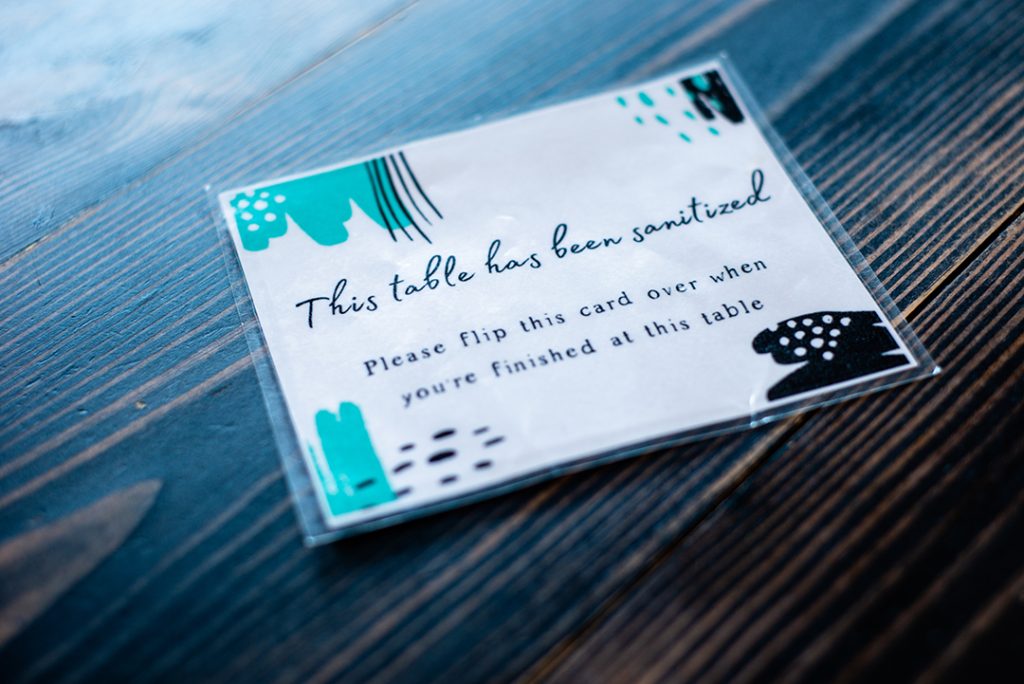
Rooted
Part of their new COVID-19 precautions, cards like this are one of the changes that Rooted Coffeehouse in Evans has made since reopening its dining room on June 12, 2020. At the beginning of the pandemic, Rooted owners moved to a drive-through-only approach similar to what many other food-service businesses have done. Surrounding neighborhoods made sure that the coffeehouse wouldn’t suffer during the closure of their dining room by keeping the drive-through busy until they were ready to adjust to a new “normal.”
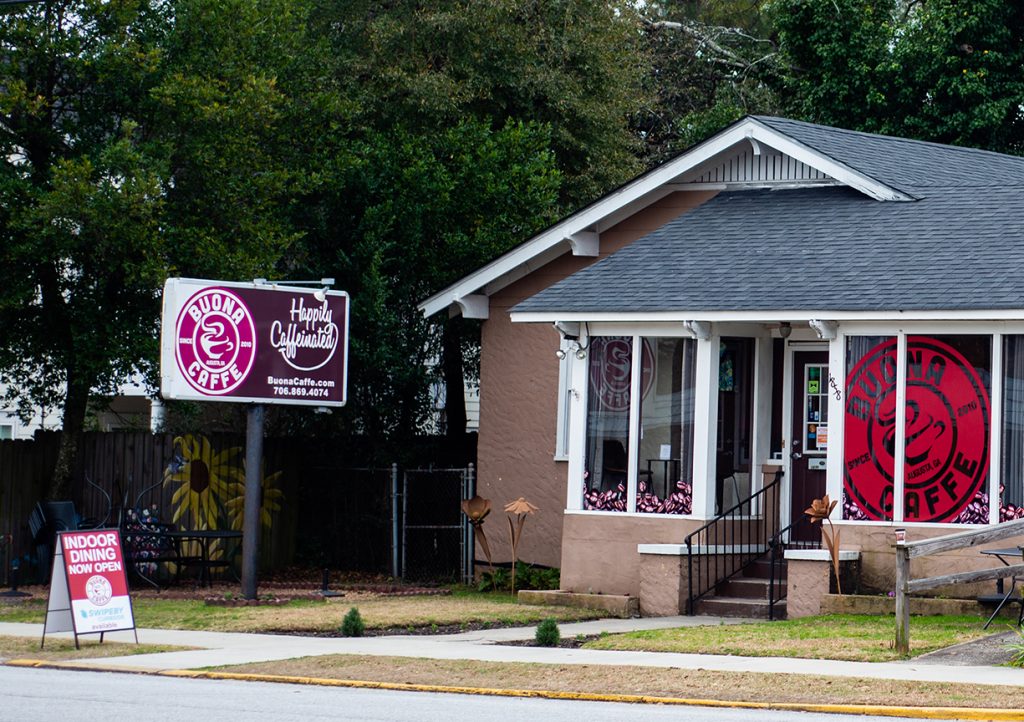
Buona Caffe
After only offering to-go services for six months, and three months of renovations, Buona Caffe on Central Avenue reopened its dining room in September 2020. Business slowed down for the shop during that period, resulting in staff not being able to work as much as they did previously. With the dining area available for customers, business has picked back up, though with some changes. For one, masks are mandatory when entering the building and ordering.
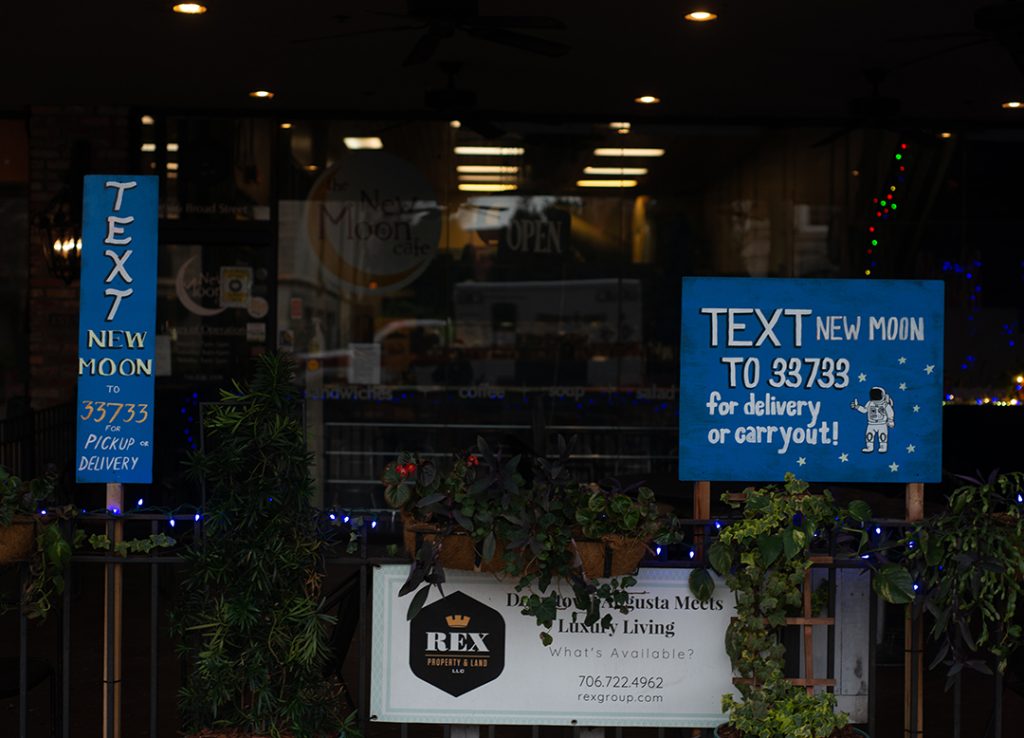
New Moon Cafe
Since March 2020, New Moon Cafe in downtown Augusta has been open seven days a week (with the exception of holidays), only taking a brief break at the end of July to give the staff time to recuperate. They still do not allow indoor dining, instead opting for outside dining with no table service, as well as encouraging pickup or delivery.
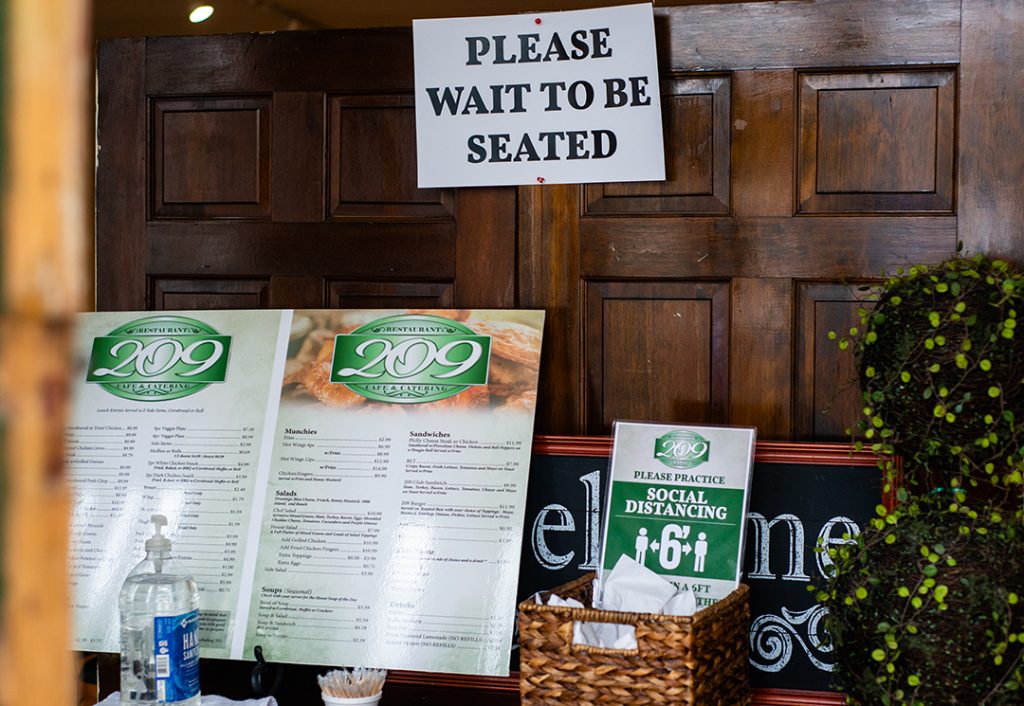
Cafe 209
Cafe 209 in downtown Augusta closed from March until June. From June until January 2021, the restaurant only offered carryout after being forced to lay off workers when the pandemic began. Now that they have opened up indoor dining, social distancing is enforced by some tables being made unavailable. Patrons are required to wear masks in the restaurant.
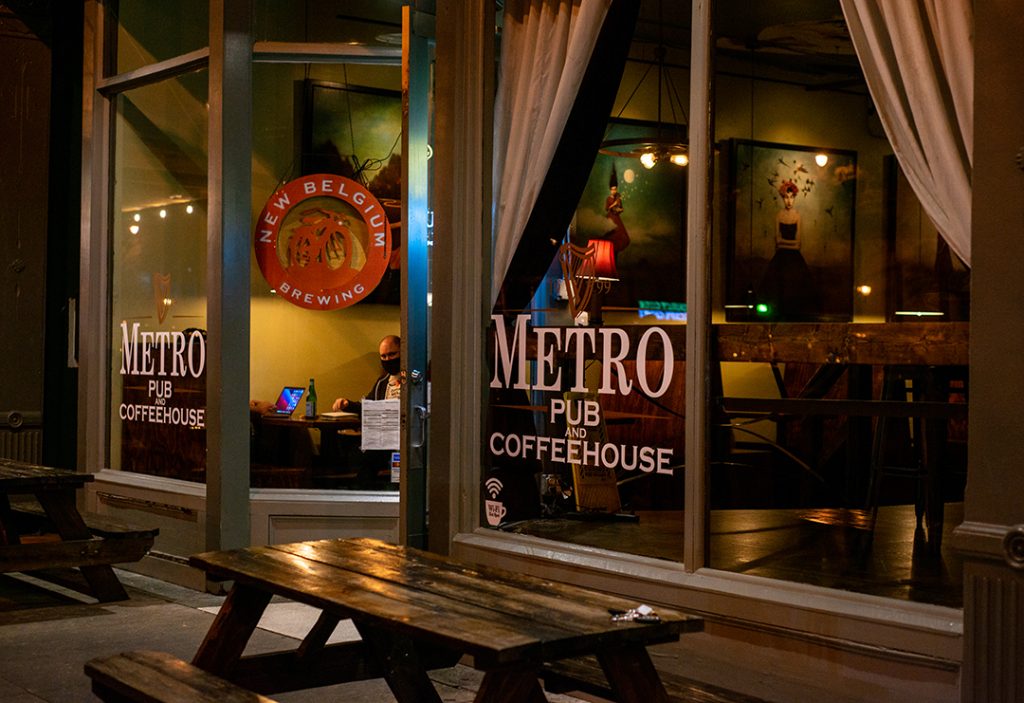
Metro Pub and Coffeehouse
Like Cafe 209, Metro Pub and Coffeehouse on Broad Street shut their doors from March until June. Even though the dining room has been reopened, the coffee house still isn’t doing business as usual. As part of Metro’s COVID-19 mitigation measures, masks are mandatory until seated, and there is no live music for the time being.
[adrotate banner=”43″]









